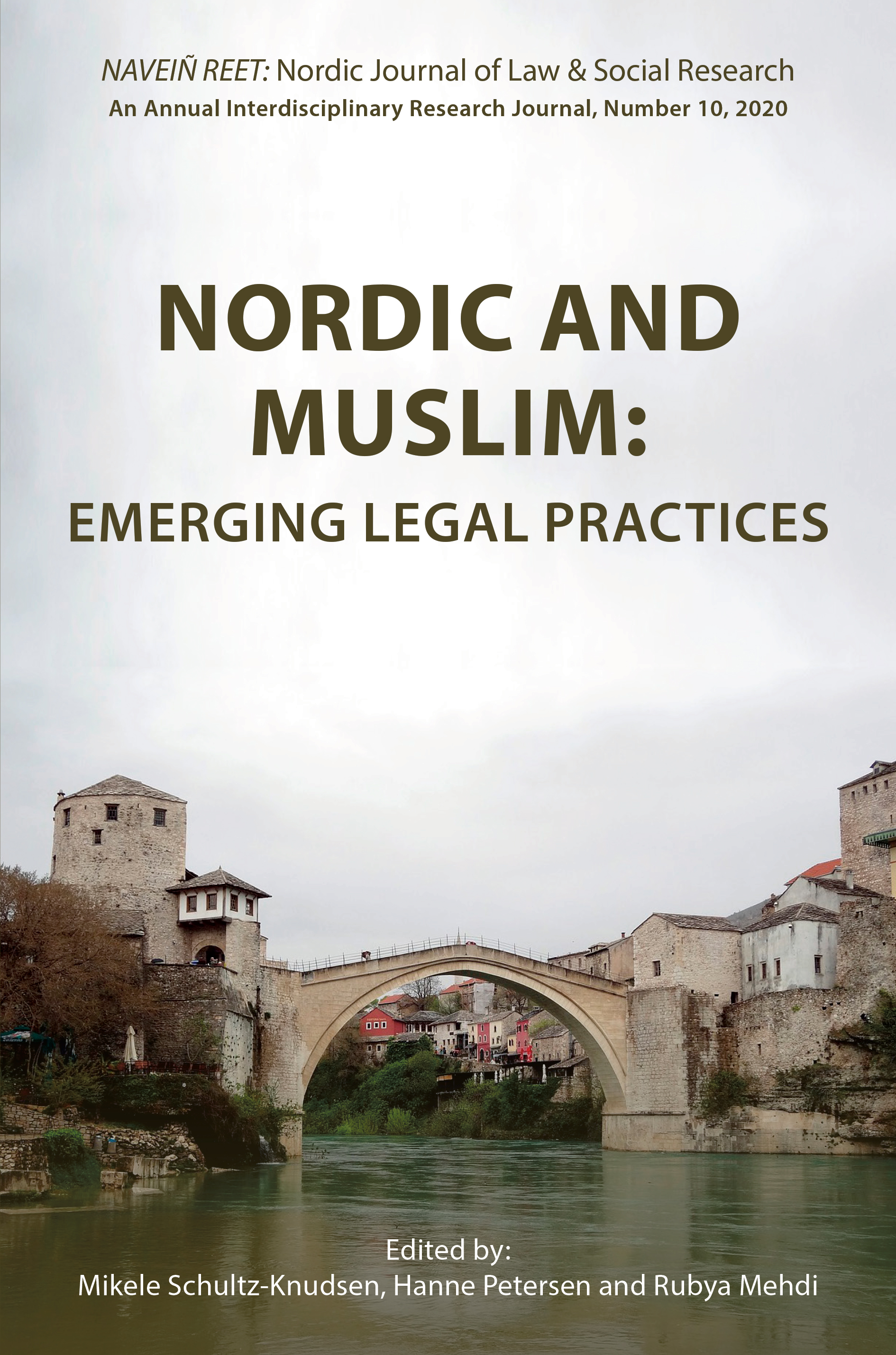In What Sense is Islamic Religious Law Legally Recognised in Denmark?
DOI:
https://doi.org/10.7146/nnjlsr.v1i10.125694Abstract
Following recent scholarly discussions on what kinds of religious law are accepted and recognised by state and the secular legal order, this article examines and discusses if and how sharia – understood as Islamic law, ethics and practice – may be considered legally recognised in Denmark. The question has both scholarly, legal and political implications, as well as a long history. The Danish context of recognition of religious communities is introduced, with some historical remarks, but this article takes a practical and empirical point of view in recent Danish legislation of recognition of religious communities and examines the specific articles of association and supporting documents that form the basis of legal recognition. The article introduces a short conceptual and theoretical discussion of what legal recognition implies and how to understand legal recognition as the mutual establishment of legal facts. The articles tests the question of legal recognition looking at empirical case evidence, key aspects and analysis of Islamic religious law in 25 recognised Islamic religious communities in Denmark. Legal recognition has important but limited implication, which should not be overstated, but the article does conclude that sharia is recognised as part of the material basis of the recognition regime in Denmark.
Downloads
Published
How to Cite
Issue
Section
License
Counting from number 12 (2022), articles published in NNJLSR are licensed under Attribution 4.0 International (CC BY 4.0). Readers are allowed to copy and redistribute the articles in any medium or format, to adapt and revise the articles, and use the articles for commercial purposes, provided that the readers give appropriate credits.
No Creative Commons licenses are applied on articles in number 1 (2009)-11 (2021). All rights reserved by the authors. Readers are allowed to download, read, and link to the articles published in volume 1 (2009)-11 (2021), but they may not republish or redistribute these articles without permission of the authors.

